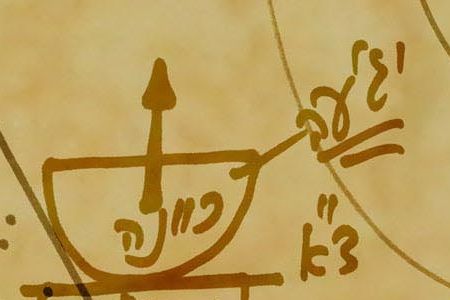Deuteronomy, 33:1-34:12
This Week’s Torah Portion | September 8 – September 14, 2013 – Tishrei 4 – Tishrei 10, 5774
In A Nutshell
The portion, VeZot HaBracha (This Is the Blessing), is the last portion in the Torah. It is dedicated to the greatness of Moses. In this portion, Moses blesses the tribes of Israel and mentions the uniqueness of each tribe and its lot.
Moses dies at the age of 120. Before he dies he climbs up Mount Nevo and is buried in a valley in the land of Moab. The children of Israel mourn his death for thirty days and assume Joshua as his heir.
Commentary by Dr. Michael Laitman
“This Is the Blessing” is the portion that concludes the Torah, and there are new issues in it that are not immediately noticeable. The whole Torah speaks of one person, within us. The Torah relates to our correction, the correction of the heart, our desires, to our rising above our egos and to the work by which we invert the ego, as it is written, “I have created the evil inclination; I have created for it the Torah as a spice” because “the light in it reforms them.”
Our entire ego becomes good. Instead of exploiting, deceiving, and stealing from others, we need to act to the contrary—bestowing and loving others. We perceive the spiritual, upper world through the quality of bestowal to others. This is really the entire correction that we need to make on ourselves. It is the entire process we must go through, and which we do in this portion, at the conclusion of the corrections that the Torah details.
Throughout the portions, we gradually correct ourselves through the light that we draw from the Torah. It is not a simple thing to do because we need to know how to draw the light. In the end, when we have drawn enough light during all the portions of the Torah, having corrected our egos, we arrive at the last stage in which the point in our hearts—the point of Moses, which has accompanied us, prepared us, explained to us, and took care of us—concludes its work.
There is no death in spirituality. In fact, there is no death anywhere; it is only how we perceive things. When we speak of someone being dead or a live, it only seems to us that way, where in fact there is renewal of forms of matter.
Continue reading “VeZot HaBracha (This Is the Blessing) Parsha – Weekly Torah Portion”

